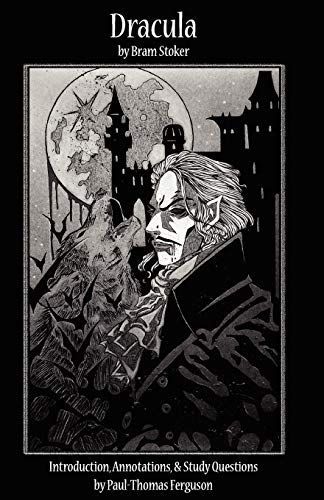
Dracula
Since its publication in 1897, Bram Stoker's Dracula has been one of the most influential works of horror fiction in the Western canon, sharing a spot on the pedestal with Mary Shelley's Frankenstein (1818). Dracula's broad appeal stems in part from its ability to fit within several different literary subgenres. In addition to horror, it works well as Gothic romance, melodrama, invasion literature and, of course, vampire fiction. Stoker did not originate the themes that individually qualify Dracula for these categories, but he did combine them in a unique way, creating a work that continues to resonate more than one hundred years later.
Reviews
Tsu 💙@tinywaves
ariana@221002a
soph @sbruno25
martian1138@martian1138
jay bee@uraniumeater
Florence@mysweetpeaches
Tove Söderberg@tlsouthmountain
fabi ✩࿐ @clotiazepam
Nellie@nelkwi
Valentina@v9
Femke@femketje1304
surtified™@heartrender081
Chulandon leanday Bradley @chulandon
Jas 🐸@jasminekloe
Selin bekkaya@selinbekks
Essence@iridessence
Maureen@bluereen
Rocío de la Hera@rdlhbooks
Paoovi@pawa
Anna @ann_omalia
Greta Keller@gretzka
Lili@lilibs
Ahsoka@ahsokaronja
Jenny Engel@jennifer975
Highlights
mia esme hsu@killyourdarlings
Emily@justcallmeemily
Page 16
Laura @shadowchu
Luca Stromann@l-s
Page 417
Luca Stromann@l-s
Page 362
Luca Stromann@l-s
Page 304
Luca Stromann@l-s
Page 250
Luca Stromann@l-s
Page 191
Luca Stromann@l-s
Page 55
Panda Ä@pandareads
Panda Ä@pandareads
Panda Ä@pandareads
Panda Ä@pandareads
Tija@itstija
Page 30
avarni@avarni
Amalie Elisabeth@amalielisabeth
Page 160
Amalie Elisabeth@amalielisabeth
Page 149
Amalie Elisabeth@amalielisabeth
Page 130
Amalie Elisabeth@amalielisabeth
Page 99
Amalie Elisabeth@amalielisabeth
Page 94
Amalie Elisabeth@amalielisabeth
Page 94
Amalie Elisabeth@amalielisabeth
Page 76
avarni@avarni
Alex J Wolfgang@alexjwolfgang